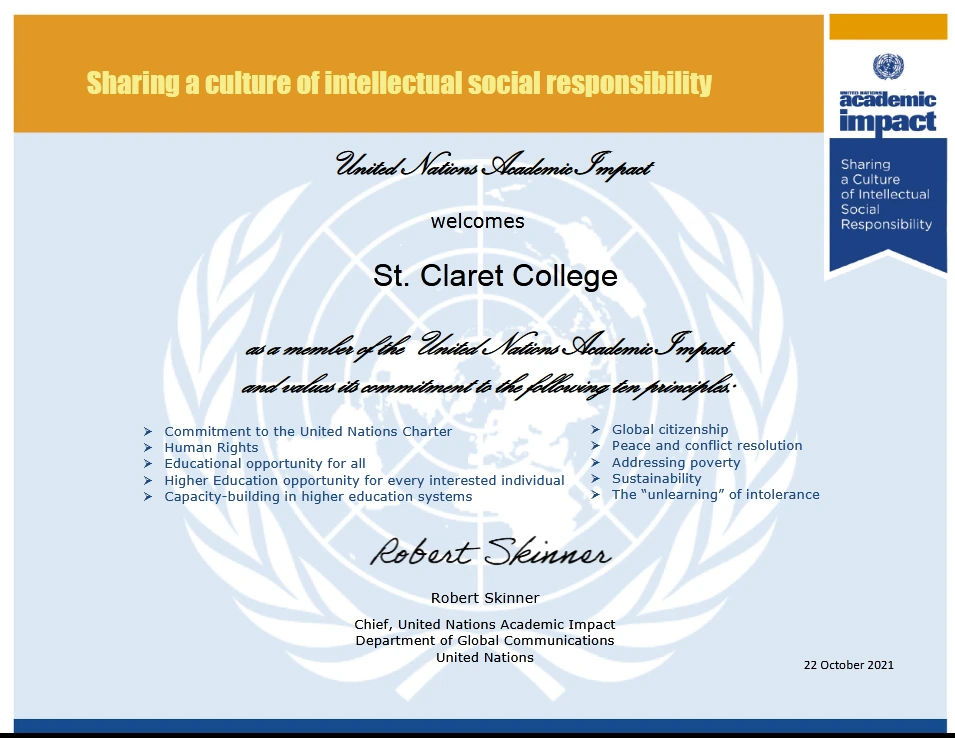United Nations Academic Impact (UNAI)
United Nations Academic Impact (UNAI) is an initiative that aligns institutions of higher education with the United Nations in supporting and contributing to the realization of United Nations’ goals and mandates, including the promotion and protection of human rights, access to education, sustainability and conflict resolution. Since 2010, UNAI has created a vibrant and diverse network of students, academics, scientists, researchers, think tanks, institutions of higher education, and educational partners. There are over 1400 member institutions in more than 145 countries that reach nearly 25 million people in the education and research sectors around the world. The work of these institutions is vital to achieving the Sustainable Development Goals as they serve as incubators of new ideas, inventions and solutions to the many global challenges we face. United Nations Academic Impact provides the integral link between the UN and these stakeholders to ensure that the international community harnesses the energy and innovation of young people and the research community in service to humanity.
UNAI assists stakeholders in this regard by disseminating information on UN initiatives and activities, providing ideas on how these activities can be applied at the local level on college campuses, in classrooms and in communities and by providing a platform where university students, academics and researchers can connect and share ideas, research and resources to further the Sustainable Development Goals and other UN mandates. There is no cost or fee for a university to join UNAI. The sole responsibility is for each member institution to actively demonstrate support of at least one of 10 UNAI principles or Sustainable Development Goals each year. More details, including the ten underlying principles of UNAI, the list of current members and how to join can be found at
https://academicimpact.un.org. St. Claret College is a member of the United Nations Academic Impact.
